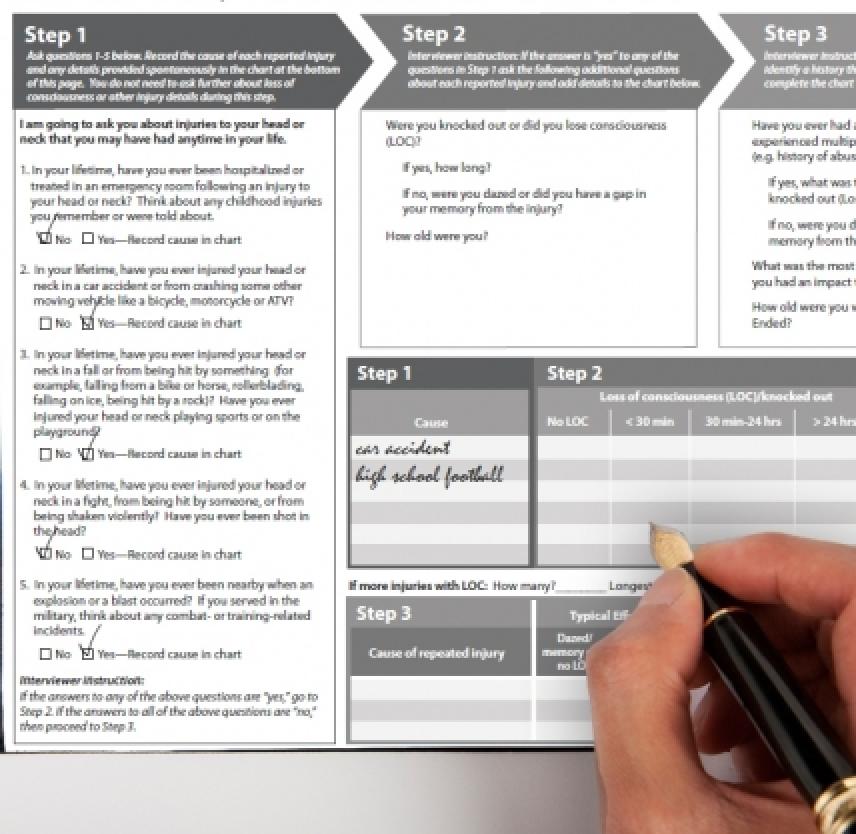
Knowing a history of traumatic brain injury can help all health care and social service professionals provide effective treatment to their patients and clients. Drs. John Corrigan and Jennifer Bogner developed The Ohio State University Traumatic Brain Injury Identification Method (OSU TBI-ID) — a standardized, short, structured interview designed to elicit a rich lifetime TBI history. This online training helps professionals learn how to effectively utilize the OSU TBI-ID and includes video examples of interviews and a ready-to-print interview form.
We encourage users to print out a copy of the OSU TBI-ID interview form prior to beginning the online training.
 |
 |
Presentation © Ohio State University and WETA. OSU-TBI Identification Method and Interview Form © Ohio State University.

Comments (5)
Please remember, we are not able to give medical or legal advice. If you have medical concerns, please consult your doctor. All posted comments are the views and opinions of the poster only.
Travis Martin replied on Permalink
As a TBI patient, I personally refuse to blame the TBI for my actions. I will let people who are closest to me know that sometimes my mood can very due to my injury, but I always take responsibility for anything I do - I DO NOT blame my injury!
It is too easy, a cop out, and unless you are in the active rest period (6 years of receiving your injury) then I don’t want to hear it!
Anonymous replied on Permalink
In response to the other post about getting arrested for Disorderly Conduct, I carry a piece of paper in my wallet that I take out and hand to authorities who are challenging me or even when I know they may communicate with me in a strong voice. It says " Please be patient woth me. I suffer from a brain injury that causes me to over-react when confronted with shouting or someone barking orders. I respond by getting loud. Any assistance to help limit excessive auditory stimulation is helpful. "
I use this routinely at the airport. TSA agents like to bark orders. The airport environment is also stressful leaving me on edge.
btw, I think this OSU TBI Identification method is a weak start and just that. There are a few other questions that may better identify possible TBI subjects. Self-reporting has inherent weaknesses, even with attempts at prompting more accurate responses.
Anonymous replied on Permalink
i suffered a severe traumatic closed-head brain injury with positive loss of consciousness for 6 weeks. my injury was on my right side of my brain. bleeding from temporal lobe to thalamus. my social skills are effected and my cognitive skills are very impaired. when stopped by a cop for "being drunk" because of the way i walk. i get upset with no way to control it. i always get a disorderly conduct ticket for i can not control my emotions. we need a statewide ID card. and officers all over the state need informed.
not just an OSU thing
Anonymous replied on Permalink
Anonymous replied on Permalink